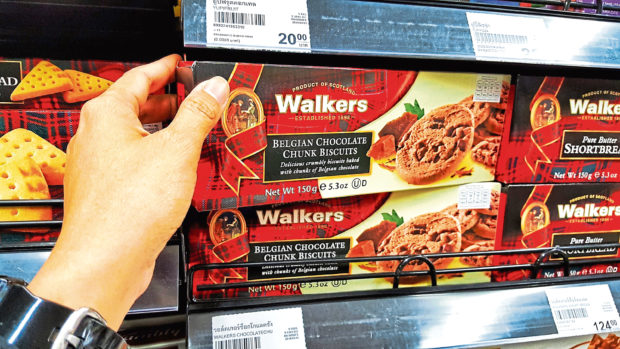Profits at shortbread giant Walker’s are facing a “huge hit” from the Covid-19 crisis and punitive US tariffs this year, the family-run firm’s joint managing director warned yesterday.
Jim Walker also said preparing for Brexit, including gearing up for possible “cliff edge” exits by the UK from the European Union, with no new trade agreement, had placed a “burden” on the Aberlour-based group.
His comments came as annual accounts published by Companies House showed that, despite increases in turnover and pre-tax profits, the company’s operating margin halved from 9.2% in 2018 to 4.6% last year.
Mr Walker said that, while the business was “well-funded, with a strong balance sheet,” the figure was “substantially short of the level required to provide what the board consider an acceptable return on the assets employed”.
And he added that, amid the continuing impact of the coronavirus pandemic, the firm, which has an average monthly workforce of around 1,400, was taking steps to improve its efficiency by streamlining its product range.
Walker’s was among a number of well-known Moray-based firms to be hit by 25% tariffs imposed by the US on imports from Europe of a range of luxury items that included single malt whisky and cashmere products. The extra tax resulted from a trade dispute centring on subsidies for civilian aircraft manufacture.
Mr Walker said the scrapping of the higher duty in relation to sweet biscuits in August was “one bright spot in 2020,” although the months it was in place would be refelected in the company’s figures for its current financial year.
He added: “It is safe to say that we are expecting a huge hit this year, badly impacted by the tariffs and also the coronavirus pandemic, which has had a huge effect on our business. The areas that we trade in, such as tourism and top end stores have been hit worst by the pandemic.”
Walker’s results for the year to the end of last December showed turnover rose to £148.8 million, compared to £146.9m for the previous 12 months, while pre-tax profits grew to £7.6m from £7m over the period.
In his foreword to the accounts, Mr Walker said: “Notwithstanding our overall sales performance and a slight easing of the wholesale price of butter, which remains high relative to historic norms, the downward pressure on prices in the UK grocery trade has again adversely impacted our margins.
“The Brexit process, where we put in place contingencies to accommodate two ‘cliff edge’ exits and deal with a range of other possible outcomes also affected our profits.”
He added the company hoped the Brexit transition period would conclude with a trade agreement “which affords us access on no less advantageous terms than we currently enjoy”.
Mr Walker said production was “successfully rebuilt” after it was halted for three weeks and the workforce placed on furlough at the onset of the Covid-19 crisis. He added the firm’s directors had decided to repay the £1.35m it initially claimed under the Coronavirus Job Retention Scheme.
And he revealed a “subtle change” to the firm’s branding, with the inclusion of an apostrophe in Walker’s, which he said refelected that the company is still run by one family more than 120 years after its establishment.
